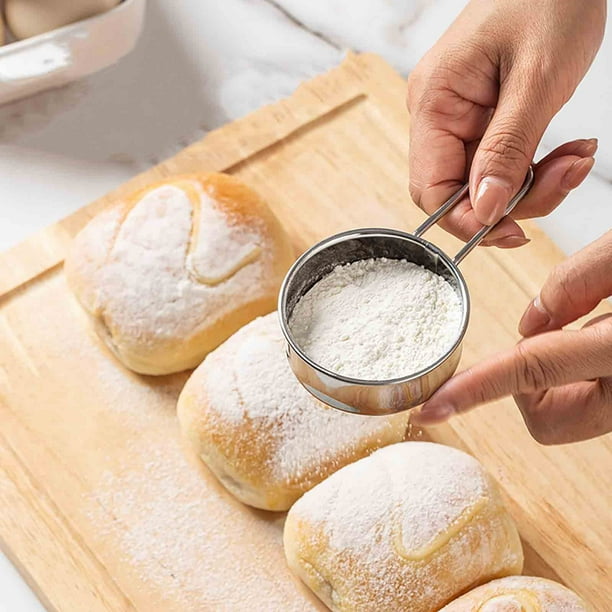Pancit Bihon (Filipino Rice Noodles)
Pancit bihon guisado is a primary Filipino stir-fried noodle dish that’s a layer of flavors and textures in every chew. The dish consists of silky noodles, robust bite-sized pork, crunchy greens, and the savory aroma of patis (fish sauce) mixed with the citrus sweetness of calamansi. Put all of it collectively and you have got a vibrant and flavorful one-dish meal.
Pancit is a celebratory dish, one which’s served for family get-togethers and to rejoice milestones, significantly birthdays. Our elders usually say the noodles invite prolonged life and prosperity, so I put together dinner pancit after we gather to rejoice life’s specific moments.
Merely Recipes / Frank Tiu
What Is Pancit Bihon?
Additionally known as bihon guisado to Filipinos, the phrase bihon comes from the Hokkien phrase “bi,” for rice and “hun” for flour. The time interval pancit is Tagalog, and its Chinese language language Hokkien origins suggest “pian” for ready and “e-sit” for meals.
Bihon are skinny thread-like noodles made with rice flour or flour mixed with rice and corn. They’re dry, stiff, and semi-transparent when uncooked. As they put together dinner and soften, the noodles flip translucent.
Pancit bihon can be known as pancit guisado, the latter which means sautéed. Guisadong pancit means the noodles are sautéed with strips of meat and greens. Usually, every pork and rooster are used. Completely different events, shrimp is added or sweet Chinese language language sausage (lap cheong) is mixed in.
Based mostly on the late Doreen G. Fernandez (pioneer Filipino meals writer), the distinctive Hokkien time interval for pancit (pian-e-sit) meant a conveniently cooked dish and did not primarily suggest noodles. Fernandez acknowledged that the noodle dish was tailor-made to native parts and flavors. Inside the information “Republic of Fashion”, Philippine culinary historian Guillermo Ramos outlined that the Chinese language language from Fujian launched pancit to the Philippines.
How To Cook dinner dinner Pancit
Asian dishes like pancit are constructed spherical numerous layers of meat, seafood, and greens, usually grown in a single’s yard. All of the items is chopped to bite-sized proportions for quick cooking and ease when consuming.
My mother taught me a wonderful sauté is the underside of a delicious dish. That is principally the easiest way to arrange dinner pancit. I moreover boil the pork first in water and seasonings to get the right style, saving the broth for the stir-fry to style the noodles.
Merely Recipes / Frank Tiu
In my grandmother’s time, the meat simmered slowly for hours on the stovetop, and the stock was used for dishes like this one. I’ve shortened the cooking time, nonetheless nonetheless get the meaty goodness wished to supply pancit bihon depth.
Shortcuts for Quicker Pancit
For a sooner cooking time, you’ll skip boiling the pork until mild and go straight to stir-frying the chopped meat with the greens. If you do this, you gained’t have the flavorful broth from the pork and you may want further time to stir-fry meat. Use store-bought rooster broth or water for the liquid inside the stir-fry.
You might as nicely save time at dinnertime by making the pork ahead of time. I pre-boil the pork numerous days ahead, then freeze the meat and broth for a further day. When it’s time to make pancit, I defrost every and so they’re ready for the stir-fry.
Recipe Variations
This could be a versatile noodle dish. You presumably can add totally different greens like napa cabbage, bean sprouts, broccoli, bok choy, snow peas, sugar snap peas, or leafy greens.
For a plant-based mannequin, omit the pork and fish sauce and use vegetable broth or water relatively than the pork broth. The flavors of a wonderful sauté of greens and noodles with a spritz of citrus and soy sauce may make the dish merely as delectable with out meat.
Merely Recipes / Frank Tiu
One-Dish Stir Fry Dinners
Dried pancit bihon noodles, calamansi juice (current, frozen, or bottled), fish sauce, and soy sauce are purchased at Asian markets or on-line sources for Asian and Filipino parts.
Cook dinner dinner Mode
(Keep show display screen awake)
For the pork
-
1/2 pound boneless pork abdomen or pork shoulder, whole slab
-
3 cups waterfor boiling the pork
-
1 pinch salt
-
1/4 teaspoon flooring black pepper
For the stir-fry
-
8 ounces dried pancit bihon noodles
-
2 tablespoons vegetable oil
-
2 cloves garlicminced
-
1 medium white or yellow onionchopped
-
1 large rib celery, chopped
-
2 inexperienced onionschopped, white and inexperienced parts divided
-
1 tablespoon yards (fish sauce)
-
1 medium carrotpeeled and julienned
-
2 cups inexperienced beansedges trimmed, sliced into 1-inch objects
-
3 cups shredded inexperienced cabbage
-
1 1/2 cups brothfrom cooking the pork
-
2 tablespoons toyo (I am willow)
-
1 tablespoon calamansi juice (or lemon juice)
-
1 pinch salt
-
1/4 teaspoon flooring black pepper
For serving
-
1/4 cup yards (fish sauce)
-
1 tablespoon calamansi juice (or lemon juice)
-
Cook dinner dinner the pork:
Using a sharp knife, trim off and discard any further fat from the pork.
In a medium-sized stockpot, combine the pork with about 3 cups of water, or enough to cowl the meat. Sprinkle with salt and flooring pepper.
Carry to a simmer over medium heat, then cowl and regulate the heat to maintain up a simmer. Cook dinner dinner until tender, about 45 minutes.
Reserve 1 1/2 cups of the pork broth for the stir-fry. When the meat is fork-tender, take away from the liquid and let it rest on a chopping board for about 10 to fifteen minutes to relax. Slice the pork into 1/2-inch cubes. Put apart.
Merely Recipes / Frank Tiu
Merely Recipes / Frank Tiu
Merely Recipes / Frank Tiu
Merely Recipes / Frank Tiu
-
Soften the bihon noodles:
Place the dry noodles in a giant bowl. Pour some water proper right into a small bowl, and use your fingers to sprinkle water over the noodles until they change into damp. Proceed sprinkling water until the noodles get mild and pliable nonetheless not mushy. Put apart.
Tip
Some recipes suggest soaking the dried bihon noodles in water for a few minutes. I want to in its place sprinkle water to soften the noodles. This system has labored properly for my pancit and the noodles do not soften or clump collectively sooner than cooking.
Merely Recipes / Frank Tiu
-
Stir fry the greens:
Place a wok or large skillet over medium heat. Add the oil. When the oil is scorching, add the garlic, onion, celery, and the white parts of the inexperienced onion and stir fry until mild and fragrant, for about 2 minutes.
Add the patis (fish sauce). Add the carrot and inexperienced beans and stir fry until beginning to soften. Add the shredded cabbage and toss properly.
Merely Recipes / Frank Tiu
Merely Recipes / Frank Tiu
Merely Recipes / Frank Tiu
-
Add the pork, noodles, and sauce:
Add the sliced, cooked pork to the mixture. Add 1 1/2 cups of the reserved pork broth, the toyo (soy sauce), and calamansi juice. Stir to mix.
Add the damp bihon noodles. Combine the noodles and the rest of the weather properly.
Cowl the pan with a lid. Proceed cooking, stirring usually, until the noodles soften and blend properly with the weather. The white noodles will change into translucent as they put together dinner and the broth will coat the noodles and supplies them a light-weight brown hue. The broth finally will get absorbed by the noodles the longer it simmers and should finish in a dry pancit noodle dish. It’s going to take 8 to 10 minutes entire.
Merely Recipes / Frank Tiu
Merely Recipes / Frank Tiu
-
Season and serve:
Sprinkle salt and pepper all through, to fashion. Garnish with the inexperienced parts of the inexperienced onions.
Serve warmth with a dipping sauce of patis mixed with calamansi juice.
Pancit bihon is best when served rapidly after it is cooked. If there are any leftovers, retailer pancit inside the fridge in a coated container for as a lot as a day. Reheat inside the microwave or on the stovetop. It is not advisable to freeze pancit bihon on account of the noodles will get watery and the greens wilt.
Love the recipe? Depart us stars below!
Merely Recipes / Frank Tiu
Merely Recipes / Frank Tiu
| Weight loss plan Information (per serving) | |
|---|---|
| 621 | Vitality |
| 23g | Fat |
| 71g | Carbs |
| 33g | Protein |
×
| Weight loss plan Information | |
|---|---|
| Servings: 4 | |
| Amount per serving | |
| Vitality | 621 |
| % Every day Value* | |
| 23g | 29% |
| Saturated Fat 7g | 33% |
| 96 mg | 32% |
| 2530mg | 110% |
| 71g | 26% |
| Dietary Fiber 6g | 22% |
| Full Sugars 9g | |
| 33g | |
| Vitamin C 55mg | 273% |
| Calcium 162mg | 12% |
| Iron 3mg | 16% |
| Potassium 817mg | 17% |
| *The % Every day Value (DV) tells you the way in which lots a nutrient in a meals serving contributes to a every day weight reduction program. 2,000 power a day is used for widespread vitamin advice. | |
Weight loss plan information is calculated using an ingredient database and should be thought-about an estimate. In circumstances the place numerous ingredient choices are given, the first listed is calculated for vitamin. Garnishes and non-obligatory parts are often not included.




:max_bytes(150000):strip_icc()/Simply-Recipes-Lumpia-Shanghai-LEAD-3-a9e6aec38b5647b0ac44890d974d288a.jpg?w=1200&resize=1200,0&ssl=1)
:max_bytes(150000):strip_icc()/Simply-Recipe-Sabzi-Polo-LEAD-09-988ae074c49a4fa6978624c320c2a864.jpg?w=1200&resize=1200,0&ssl=1)
:max_bytes(150000):strip_icc()/Simply-Recipes-Antipasto-Salad-LEAD-5-5cd7dc17916d424ab094f0cfe2de1a86.jpg?w=1200&resize=1200,0&ssl=1)